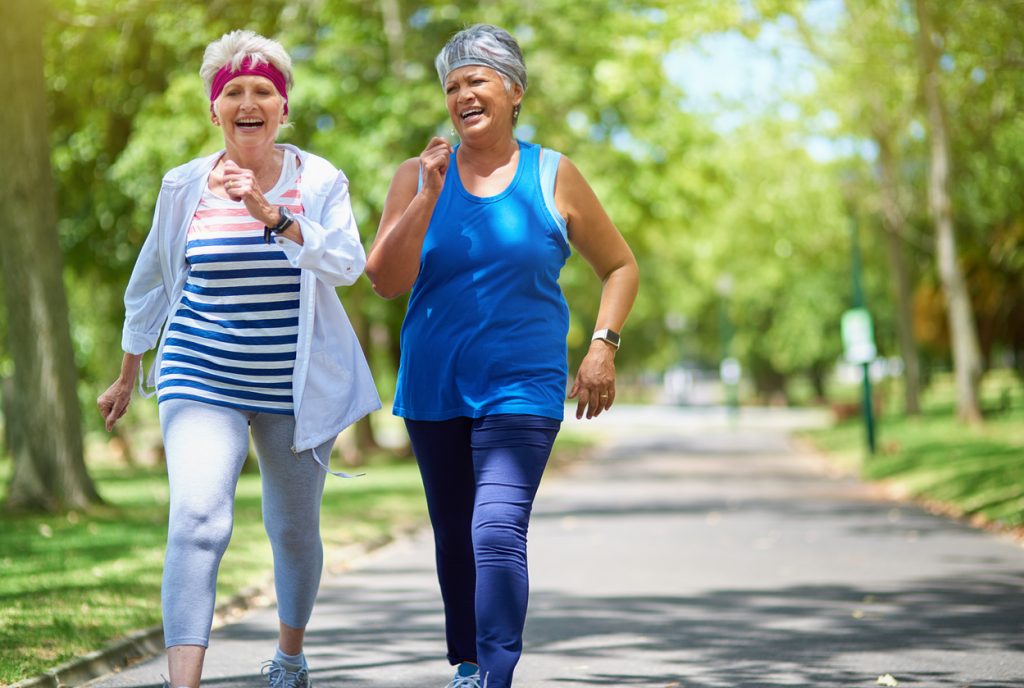






As we age, we begin to slow down and become more sedentary, but this does not mean we have to stop prioritizing our health and fitness. In fact, regular physical activity and exercise is one of the most important things we can do for our health as we age. Exercise is also good for our mind, mood, and memory and there are many exercises for older adults that can be easily added into your routine.
Keep reading to learn more about the importance of exercise for seniors and for some exercises for older adults to increase health and fitness.
Maintaining an active lifestyle in older age helps improve our mental and physical health. Older adults who exercise regularly are less likely to develop osteoporosis, high blood pressure, heart disease, and diabetes. Exercise also improves strength and flexibility which improves balance and coordination, decreasing the risk of falls and injuries.
Physical activity can also help prevent or delay memory loss, declining cognitive functions, dementia, and even lower the risk of Alzheimer’s disease. Exercise boosts immune function and is a natural stress reliever and mood enhancer that can decrease feelings of anxiety and depression.
Exercises for older adults should include a combination of aerobic activity, strength training, and flexibility/balance exercises. Whether you are starting a new fitness journey or looking to add more exercises to your routine, try some of these exercises:
You can shop exercise aids here
Exercise is an essential part of staying healthy as we age. Whether you go to the gym, join a water aerobics class, or get movement from gardening, being active improves our overall well-being. Be sure to talk with your primary care physician before trying a new exercise or adding more activity into your current fitness routine to prevent injury.
**The information on this site is not intended or implied to be a substitute for professional medical advice. If you are having a severe and sudden change in physical or mental health, please call 911, contact a local emergency facility or consult with your doctor. Always seek the advice of your physician or other qualified healthcare provider, and never disregard the advice given because of information you have received from our website.**



